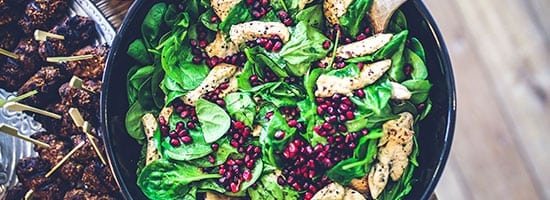
One of the many benefits of weight loss surgery is the ability to get back to forms of exercise you used to enjoy for fun or competitively before excess weight became a problem. How soon you’ll be able to do this will depend on the specific procedure you had and how well you heal and recover. If your preferred activities included intense exercises like running and cycling, there are some eating and diet habits that can help you maintain your nutrition goals post-surgery while giving you the energy you’ll need to become competitive again.
Stay Hydrated
No matter how long it’s been since your weight loss surgery, hydration is important, especially when running or cycling. Get into the habit of taking sips of water even if you don’t feel thirsty to avoid becoming sluggish or getting cramped up. If you’re going to do some of your hydrating with sports drinks, opt for ones that are electrolyte-enhanced without any calories.
Watch Your Simple Sugars/Carbs
The purpose of sports drinks is to provide quick energy for runners and cyclists. The potential problem for weight loss surgery patients is that simple sugars in some sports drinks may trigger diarrhea, cramping, or bloating as they quickly go through your digestive system. Resulting blood sugar spikes could be problematic, particularly for weight loss patients with diabetes.
Simple carbs, which are primarily foods with white sugars and flours, should also be avoided between workouts since you won’t be getting very many beneficial nutrients to help you maintain your energy. Instead of simple carbs, opt for complex carbs that can be found in:
• Whole grains
• Green, leafy vegetables
• Apples, pears, apricots, and other fruits with a high fiber content
• Lean proteins
Mix Proteins with Carbs
If you are going to be having sugar-containing food prior to your running or cycling event, pair it with a protein to prevent blood sugar spikes or GI issues. This can be done by putting fruit in your protein shake or having a protein bar that also has carbs.
Be Cautious with ‘Carbo Loading’
You may have been in the habit of upping your carb intake the night before a running or cycling event prior to your surgery, but doing the same thing post-surgery could contribute to issues with hunger control or blood sugar fluctuations. It’s better to be consistent with your eating habits and add complex carbs to your pre-event meals instead to get the extra energy boost you’ll need to be competitive.
Also, be mindful of any running or cycling prep articles you may read and make appropriate adjustments specific to what’s right for your post-surgery dietary needs. If, for instance, you find advice about having more pasta for carbo-loading purposes, keep in mind that pasta can contribute to pouch swelling. Instead, go with chicken breast and a sweet potato to get a healthier carb-protein mix. You’ll also appreciate knowing that every 20 minutes of cycling and running can use up 135 and 190 calories, respectively.







